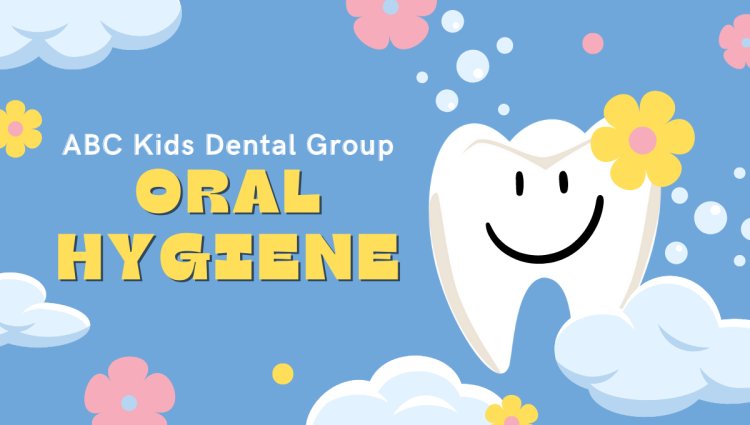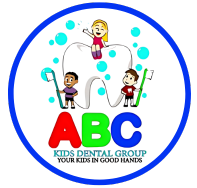What is the importance of oral hygiene?
Oral hygiene is the process of maintaining your mouth healthy and free of disease. It includes flossing and brushing your teeth and going to your dentist regularly to have dental X-rays, exams, and cleanings.

Oral hygiene is the process of maintaining your mouth healthy and free of disease. It includes flossing and brushing your teeth and going to your dentist regularly to have dental X-rays, exams, and cleanings.
Why is it important to maintain a healthy mouth?
Dental hygiene is preventative treatment. This means you can avoid oral health issues including gum disease, cavities poor breath (halitosis), and many other problems in the beginning by taking dental care and gums.
Oral health is also connected to overall health. If, for instance, an infection occurs within your mouth, your bloodstream could transport the bacteria to other parts of your body thereby leading to health issues such as stroke and heart disease. Making sure your teeth and gums are in good shape is an essential aspect of maintaining your overall health for a long time.
What are the conditions that affect oral health?
Studies show that gingivitis as well as periodontitis are linked to a variety of illnesses, such as:
- Cardiovascular disease.
- Stroke.
- Endocarditis (infection of the heart's internal liner).
- Pneumonia.
- Birth complications during pregnancy, like preterm birth or insufficient birth weight.
However, some medical conditions could negatively affect your gums and teeth for example:
- Diabetes.
- Osteoporosis.
- HIV/AIDS.
- Alzheimer's disease.
If you or someone close to you is suffering from any of the diseases mentioned above, ask your dentist about ways to promote and improve overall health with good oral hygiene.
What are the symptoms of poor hygiene in the mouth?
There are a variety of indicators that may indicate oral health issues. The most commonly observed indicators that indicate poor dental hygiene are:
- Bleeding gums.
- Tooth decay.
- Bad breath that is persistent.
- Teeth that are loose.
- Gum recession.
- Mouth sores that won't disappear.
- Toothache.
- Jaw swelling.
- Gingivostomatitis is an oral infection caused by certain viruses or bacteria.
PROCEDURE SPECIFICATIONS
What can I do to increase my hygiene at the dentist?
A good oral hygiene routine protects gums and teeth and helps keep your smile stunning. These are general dental hygiene tips to ensure your smile is healthy:
- Cleanse your teeth twice per day. Make sure to use fluoride toothpaste as well as a soft-bristled brush. (Medium and hard bristles could harm your gums and damage the enamel of your teeth.) When you brush, position your brush at an angle of 45 degrees toward your gums. This will help remove bacteria and plaque along the line of your gums. Make sure you clean all surfaces of your teeth including the backs and sides.
- Floss once daily. It is impossible to reach the spaces between your teeth by brushing alone. To get these areas cleaned it is necessary to use dental floss. Pick a floss piece approximately 18 inches in length. Wrap it between the middle of your fingers. Utilizing your thumbs and forefingers to guide your floss in between your two teeth. Wrap the floss over one of your teeth in a C-shape and then clean it with about 10 upward and downward strokes. Then you should wrap the floss around the second tooth and repeat. Repeat this procedure on all your teeth. If you are struggling with dexterity You can also make use of dental picks and interproximal brushes to cleanse in between the teeth. ( A note regarding the water flosser: While water flossers are great for getting rid of large chunks of food and other debris, they aren't able to remove biofilm off your teeth' surfaces. If you're using water flossers, make sure to use traditional dental floss too.)
- Cleanse your tongue. Your tongue is like sponges. If you are brushing your teeth, remember to wash your tongue. It is possible to brush your teeth to do this. You can also purchase an instrument to scrape your tongue in the oral health aisle.
- Use a mouthwash that is antibacterial every day. The mouthwash that is antibacterial assists in keeping bad oral bacteria at low levels. It is not only effective in getting rid of food particles and other debris, but it can also help reduce plaque build-up. Be sure to select an alcohol-free formulation to prevent dry mouth.
- Visit your dentist regularly. Regular dental examinations and cleanings are crucial to healthy dental health. Many people can do fine when they visit their dentist every six months. If you're more prone to gum disease, cavities, or any other oral health issues You may require regular appointments.
- Do not smoke or other tobacco-related products. Smoking cigarettes is the leading source of gingivitis as well as oral cancer. It is best to stay clear of the use of these products completely. If you smoke and want to stop talking to your doctor for treatment options that could aid you.
Remember that the most effective dental hygiene regimen is one you keep up with. Discuss with your dentist the best oral health routine for you that will meet your requirements.
What oral hygiene products do I need to make use of?
When you are looking for dental medical products, the most effective method is to search for the American Dental Association Seal of Approval. This seal, granted by the American Dental Association, means that the product has been thoroughly evaluated and approved by scientists in the fields of microbiology, toxicology, and pharmacology.
Based on your particular situation Your dentist can offer specific recommendations for products. Discuss with your dentist the products that best suit your needs.
BENEFITS / RISKS
What are the benefits of maintaining healthy oral health?
Although your dentist might be able to repair teeth that have been damaged due to gum disease or decay It is always better to prevent issues before they begin. This is why the importance of good oral hygiene comes into. Maintaining a healthy oral hygiene practice can provide numerous advantages, such as:
- Gums and teeth that are healthier.
- A gorgeous smile.
- Fresher breath.
- There is less necessity for dental work, such as crowns, fillings bridges, implants, bridges, or dentures.
- A lower chance of developing heart disease, diabetes, stroke, and other health problems.
- A lower chance of developing oral cancer.
Furthermore, preventative dentistry is less expensive than emergency or restorative dental treatment. Therefore, maintaining a healthy and clean mouth will save you time, stress, and cost in the end.
REFLEXION and RECOVERY
What is the best time to go to my dentist for check-ups and cleanings?
In accordance with the American Dental Association, you must have periodic dental exams and cleanings at intervals as recommended by your dental professional. Most people require regular cleanings every six months to ensure their gums and teeth are in good condition. However, if you're predisposed to gum disease or tooth decay Your dentist might need to visit you more frequently. For instance, it's normal for those suffering from gum disease to visit their dentist at least every three to four months. This is because the amount of oral bacteria increases in certain people. Ask your dentist which type of schedule for cleaning is best for you.
What's Your Reaction?























